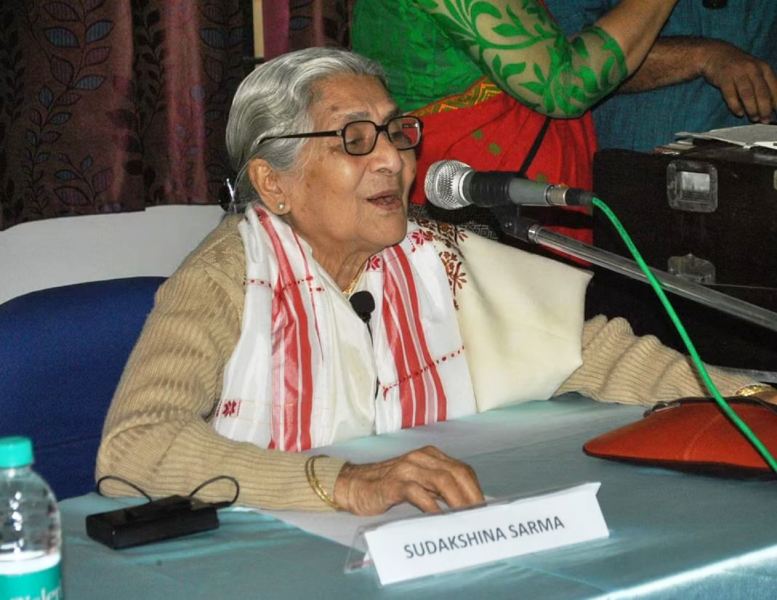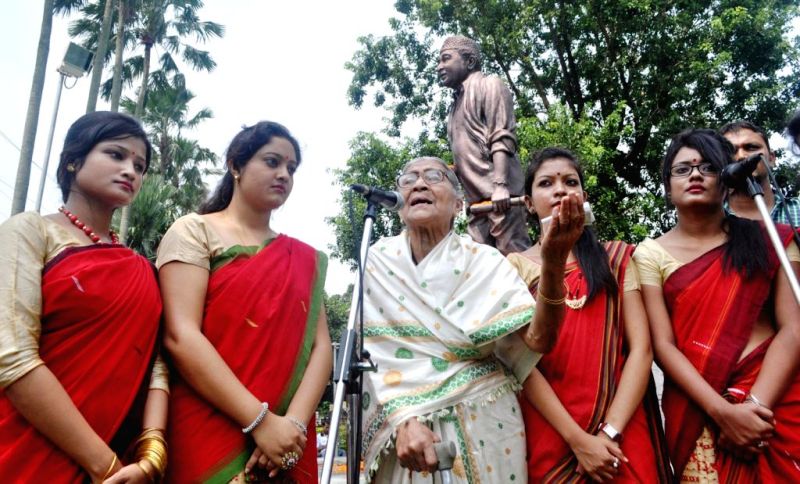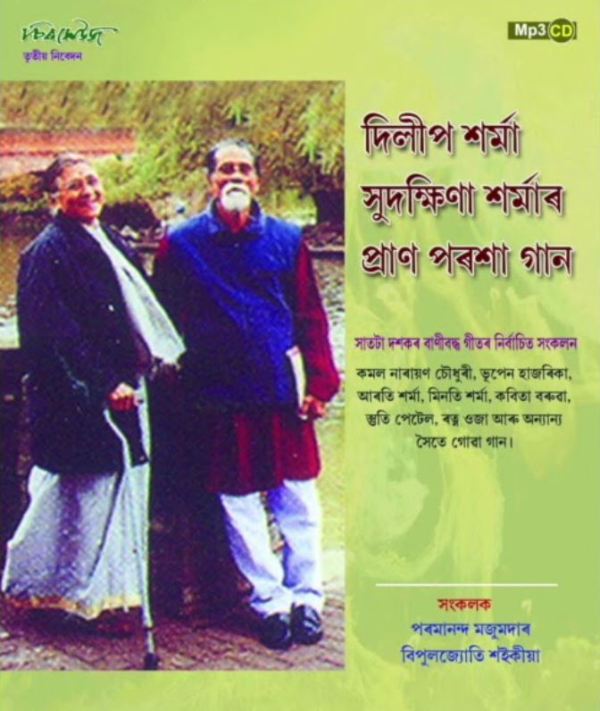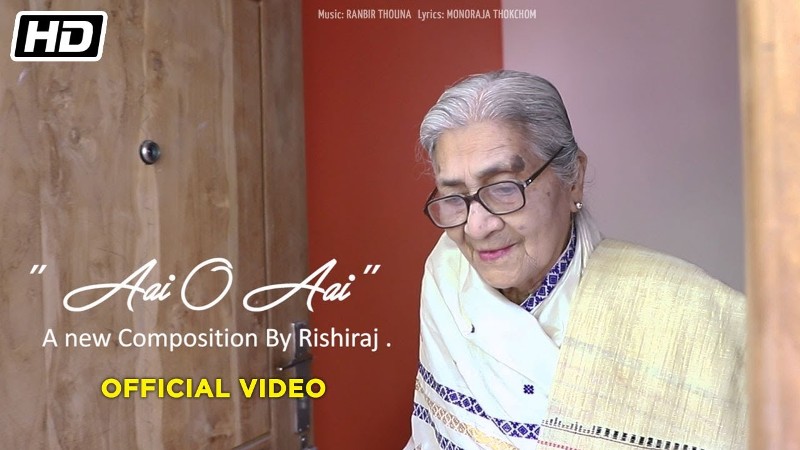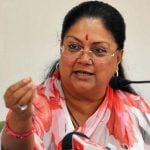Sudakshina Sarma Age, Death, Husband, Family, Biography & More
| Bio/Wiki | |
|---|---|
| Birth name | Nirupama Hazarika [1]Frontline |
| Nickname(s) | Queen, Queenie Hazarika [2]Frontline [3]The Times of India |
| Profession | Singer |
| Physical Stats & More | |
| Eye Colour | Black |
| Hair Colour | Grey |
| Personal Life | |
| Date of Birth | 8 August 1934 (Wednesday) |
| Birthplace | Bharalumukh, Guwahati, Assam Province, British India (now Guwahati, Assam, India) |
| Date of Death | 3 July 2023 |
| Place of Death | Gauhati Medical College and Hospital (GMCH), Guwahati, Assam |
| Age (at the time of death) | 88 Years |
| Death Cause | Age-related illnesses [4]Frontline |
| Zodiac sign | Leo |
| Nationality | • Britsh Indian (1934-1947) • Indian (1947 - Till Death) |
| Hometown | Guwahati, Assam |
| School | Panbazar Girls’ High School, Guwahati, Assam |
| College/University | Handique Girls’ College, Guwahati, Assam |
| Educational Qualification | BA at Handique Girls’ College, Guwahati, Assam [5]The Telegraph |
| Caste | Jalia Kaibarta Note: Jalia Kaibarta is Assam’s Dom fisher caste. Historically considered an untouchable caste, Doms were later listed as Scheduled Caste for Reservation in India. [6]The Hindu |
| Relationships & More | |
| Marital Status (at the time of death) | Widowed |
| Marriage Date | Year, 1954 |
| Family | |
| Husband/Spouse | Dilip Sarma (singer, composer)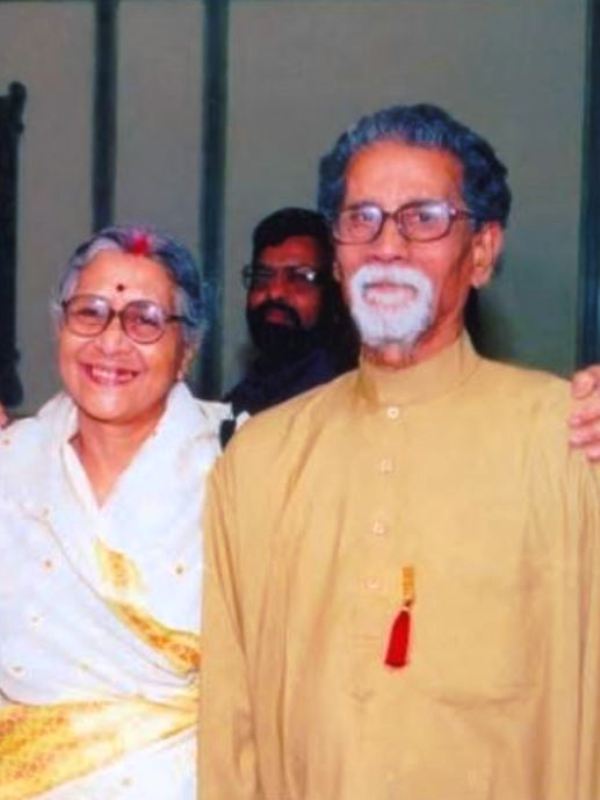 |
| Children | Son(s)- Rituparna Sarma (singer), Rishiraj Sarma (singer)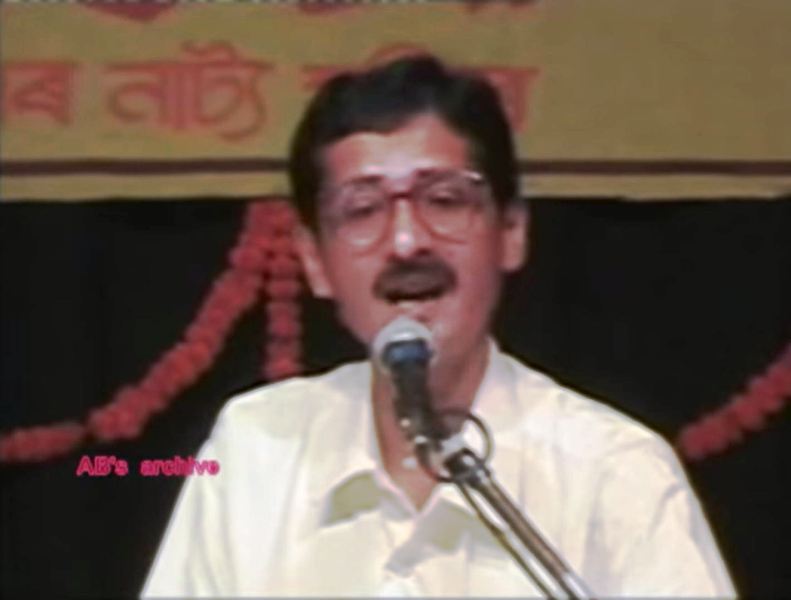 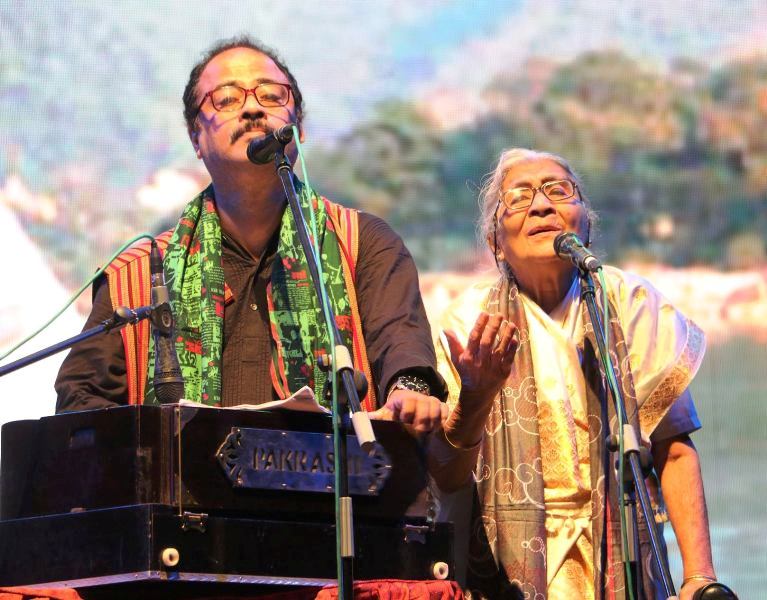 Daughter- Rijushree Sarma Majumdar 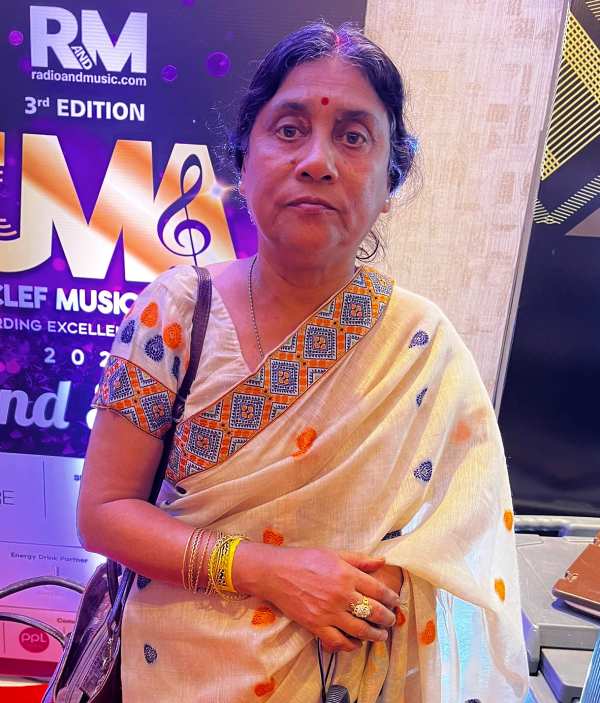 |
| Parents | Father- Neelkantha Hazarika (ACS officer, music composer) Mother- Shantipriya Hazarika (member of Assam Pradeshik Mahila Samiti) |
| Siblings | Brother(s) • Bhupen Hazarika (eldest; singer, poet, actor, filmmaker, professor, politician) 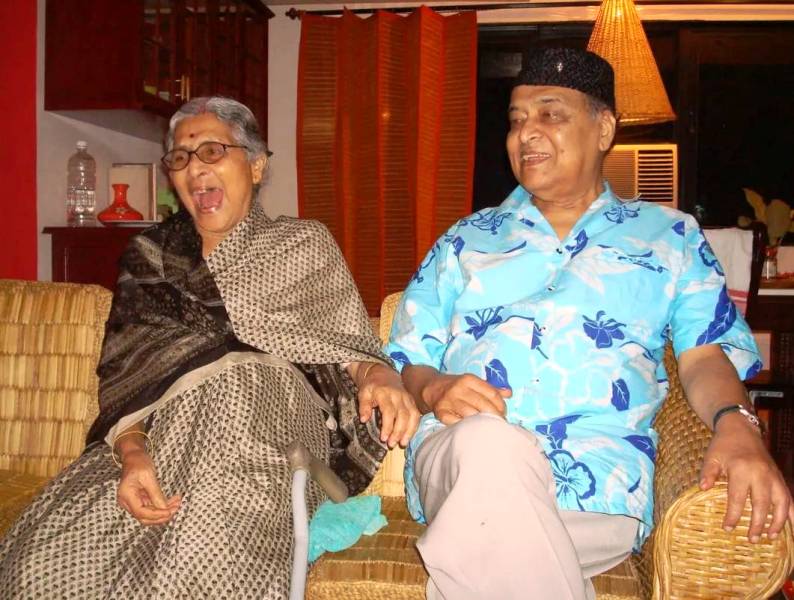 • Samar Hazarika (playback singer and an employee at the Food Corporation of India) 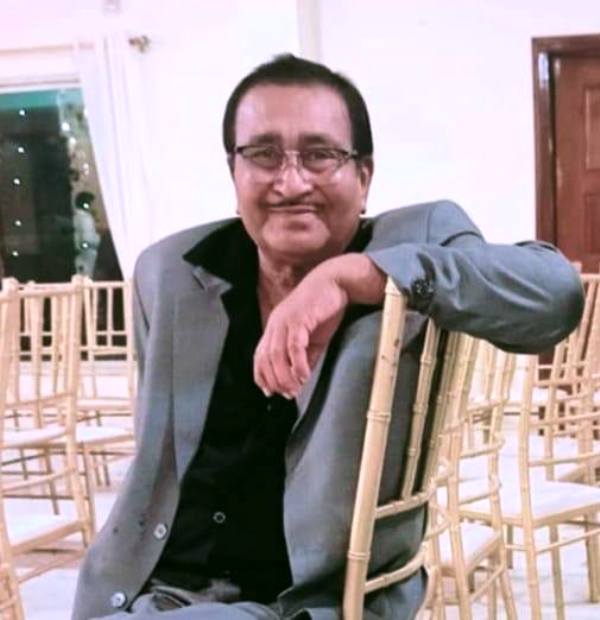 • Balen Hazarika (younger; cultural activist, music secretary of Cotton College, retired professor from Saint Anthony College, Shillong) 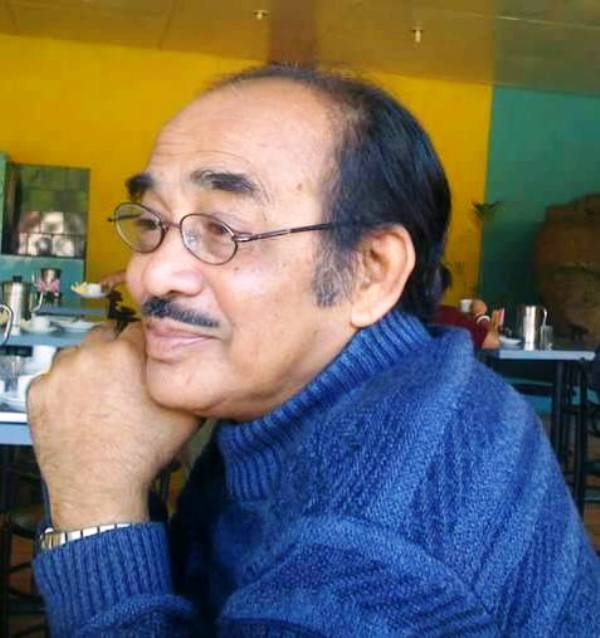 • Jayanta Hazarika (ninth among the 10 children; singer, composer) 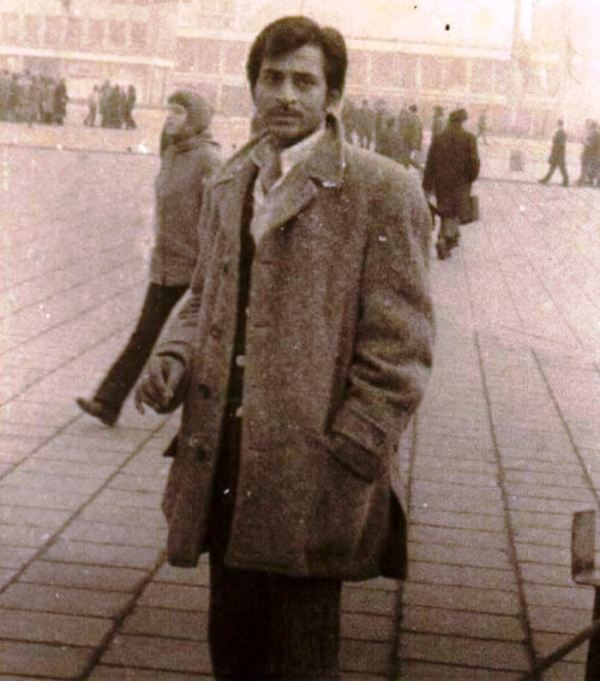 • Nripen Hazarika 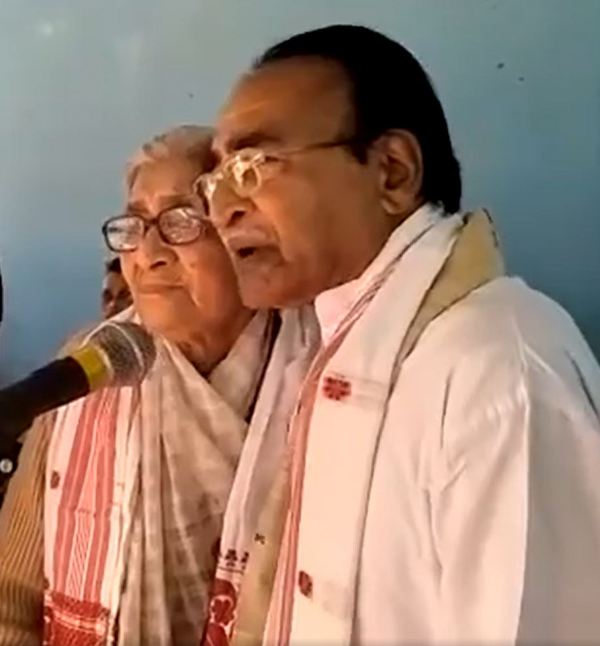 Sister • Sushma Hazarika Note: Sudakshina had nine siblings. She was the fourth among the 10 children. |
Some Lesser Known Facts About Sudakshina Sarma
- Sudakshina Sarma was an Indian Assamese language singer and musician. In a career spanning over seven decades, she voiced various songs in a variety of classical and modern genres like Borgeet, Kamrupi, Goalparia, Bongeet, Biyanam, and Bihunam across Assamese music. She is also known for popularizing Jyoti Sangeet and Rabindra Sangeet. Famous Assamese songs under the belt include Kotha Aru Shur, Jetuka Bolere, and Sharatkalor Rati. She was the sister of legendary Assamese singer Bhupen Hazarika. She died due to age-related ailments on 3 July 2023.
- Born as Nirupama Hazarika, she was fondly referred to as Queen during her childhood. Later, when she embarked on her career, she was referred to as Queenie Hazarika. According to her sister-in-law Manisha Hazarika (Jayanta Hazarika’s wife), Bishnu Prasad Rava gave the name Queenie to her. However, following her marriage in 1954, her father-in-law, Dinanath Sarma, gave her the name Sudakshina. [7]Frontline [8]The Times of India
- Her father hailed from Nazira, Assam.
- Interestingly, Nirupama dreamed of becoming a nurse during her childhood, an aspiration influenced by a book that she read about Florence Nightingale. However, her ineptitude in mathematics prevented her from pursuing studies in science.
- Sudakshina grew up in an artistically inclined family that embraced their cultural roots. With a total of nine siblings, her earliest encounters with music occurred through her mother, who would sing lullabies and traditional Assamese folk songs to her children. Growing up, she used to listen to the gramophone records of renowned singers like Pankaj Mullick, Saigal, and Kanan Devi. Additionally, her elder brother Bhupen Hazarika was a major influence on her artistic growth. She grew up listening to his songs on the radio. In an interview, she recalled the same and said,
There were only two radio sets in the locality — one at Tarun Ram Phookan’s house and one at MP Rohini Choudhury’s residence. Whenever Bhupenda informed us, we used to rush to either of these houses to listen to his songs. But sometimes it was frustrating since we usually missed the first portions of the song while conducting the initial formalities in their household.”
- Later, she started to accompany Bhupen to musical events in various cities various Assam like Dhubri, Tezpur, Sonitpur, and Mangaldoi, which fueled her artistic growth. While attending these musical events, she made acquaintance with various stalwarts of Assamese culture like Bishnu Prasad Rabha, Rupkonwar Jyotiprasad Agarwala, and Phani Sarma.
- Her mother, Shantipriya Hazarika, was an active member of Assam Pradeshik Mahila Samiti. Sudakshina would often accompany her mother to the organization’s meetings, where she had the opportunity to interact with numerous freedom fighters and activists such as Chandraprabha Saikiani, Amalprava Das, and Begum Abida Ahmed (the wife of Fakhruddin Ali Ahmed).
- In 1943, she got a chance to play the role of young Sankardev in a play directed by Bishnu Rabha for a half-hour programme on Assamese culture. The play was to be broadcast by All India Radio. However, she lost the opportunity as she suffered from a bout of typhoid.
- In 1944, at the age of 10, she ventured into the Assamese music industry with the songs ‘Nahar Phule Nushuwai’ and ‘Biswar Chande Chande,’ which she recorded with Assamese actor and music director Kamal Narayan Chowdhury in Kolkata (then Calcutta). Composed by her mentor Bishnu Rabha, the songs became instant hits.
- In the same year, she lent her voice to two more hit songs, ‘Duronir Hou Rini Rini’ written by Anandiram Das, and ‘A’ Moina Ketia Ahili Toi’ composed by her father, Neelkantha Hazarika.
- In 1946, Sudakshina secured the opportunity to sing the song “E Joy Raghur Nandan” for Mahatma Gandhi during an event at Jubilee Garden in Guwahati. She cherished this experience as one of the most significant moments in her life. Talking about the same in an interview, she said,
I can never forget that special moment in my life. Gandhiji wanted to listen to an Assamese bhajan. Then Gopinath Bordoloi asked me to sing a song, and Bishnu Rabha suggested E Joi Roghunandan.”
- In 1948, Sudakshina experienced another profound moment in her life when the ashes of Mahatma Gandhi were ceremoniously immersed in the Brahmaputra river at the Shukhreshwar Ghat following his tragic assassination. On the solemn occasion, she performed the song ‘Prithibir Shirot Bajrapat Porile,’ composed by her elder brother Bhupen Hazarika.
- In the same year, she secured the opportunity to work for All India Radio when its unit was opened in Guwahati.
- Besides singing, she would also act in plays and participate in folk dance recitals.
- In 1954, Sudakshina was preparing to take final exams for her BA degree when she got married to Assamese singer-composer Dilip Sarma, the son of Dinanath Sarma, the founder and editor of Assamese Magazine Awahan. Dilip and Sudakshina first met in 1943, when she was recording Kalaguru’s song Nahor Phule Nusuwai Tagar Phule Suwabe under Senola Records in Calcutta. In an interview, Dilip recalled his first meeting with Sudakshina and said,
During one such programme at the Kumar Bhaskar Natya Mandir in Uzan bazaar, Uday Shankar presented a novel dance drama with his troupe members performing robotic artistic movements. That night, she (Sudakshina) also presented a beautiful classical dance number.”
- The union opened new doors for Sudakshina’s artistic career following which she went on to record hits like Moyu Bane Jao Swamihe, Nahar Phule Nushuwai, Kamalkuwari More Praneswari, Rati Puwaelre Kuruwai Pare Rao, and Ur Ur Ur Neel Akashat with her husband.
- Sudakshina and Dilip were active members of the Assam division of the Indian People’s Theatre Association (IPTA) (also known as Gananatya Sangha). The couple was known for its expertise in Rabindra Sangeet (songs written and composed by Rabindranath Tagore). They dedicated their lives to preserving various genres of music, including folk, classical, light classical, and modern compositions. In the 1950s, they performed Jyoti Sangeet (songs written by Assam’s cultural icon Jyoti Prasad Agarwala) in China as part of cultural exchange programs. In 1990, they established the Jayjayanti Kala Kendra, a music college and art school affiliated with Pracheen Kala Kendra in Chandigarh, and the Sarbabharatiya Sangeet O Sanskriti Parishad. They also founded the Dilip Sarma-Sudakshina Sarma Cultural Academy.
- In addition to folk and classical music, Sudakshina also worked as a playback singer for several LP records of dramas including Prabin Phukan’s Maniram Dewan, Sarbeswar Chakraborty’s Piyoli Phukan besides Vishnu Shakti and Rakshya Kumar of Lakshyadhar Choudhury.
- She also lent her voice to several Assamese films, such as Chik Mik Bijuli (1969), Pargat, and Abuj Bedona (1993), directed by her husband Dilip Sarma.
- She recorded the Assamese version of Rabindra Sangeet called ‘Arup Tomar Bani’ and released several audio cassettes under different music labels like HMV, Columbia, and Senola Records.
- In 2002, Sudakshina and Dilip became the recipients of the prestigious Sangeet Natak Akademi Award for their contribution towards the research and practice of Assam’s folk music and Jyoti Sangeet. It was for the maiden time that a couple was accorded the honour simultaneously.
- Her daughter, Rijushree, is married to renowned author Paramananda Majumdar.
- Even after retiring from public performances, Sudakshina continued to teach music until her old age limited her abilities.
- In 2020, she collaborated with her son Rishiraj Sarma to release the song “Aai-O-Aai.”
- In 2022, she underwent leg surgery at Gauhati Medical College and Hospital (GMCH) after she fell in the bathroom. Previously, she had gone through hip joint surgery.
- On 23 June 2023, Sudakshina Sarma was admitted to the Intensive Care Unit (ICU) of Gauhati Medical College and Hospital (GMCH) due to pneumonia and bed sores. Her condition improved later, and she was moved to a cabin for further care. However, on the night of 2 July 2023, her health deteriorated once again, and she passed away on 3 July 2023 at 8:25 am. Her body was taken to her home for her family and well-wishers to pay their final respects.
- Sudakshina had donated her eyes and body for medical research to Ellora Vigyan Mancha, an NGO in Guwahati that supports organ donation. [9]The Indian Express
References/Sources:

